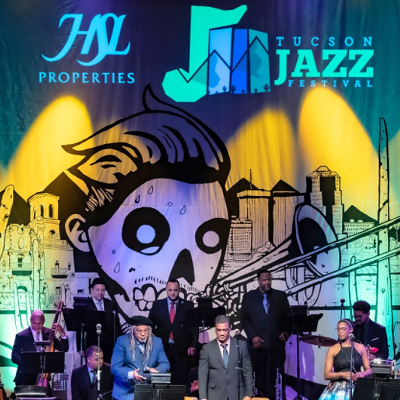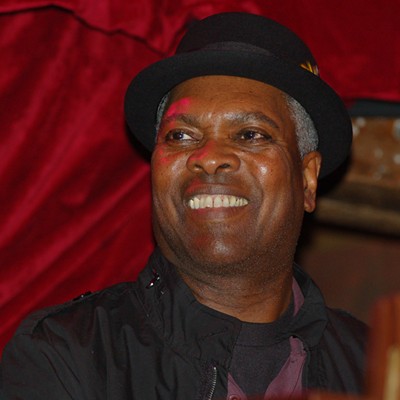But the music must be fun, said Ben Jaffe, the 36-year-old bass player and director of Preservation Hall in a recent cell-phone interview. He was speaking while the rest of the band was on the road, headed toward Tucson for a performance this Friday, Feb. 16, at the UA's Centennial Hall.
"Preservation Hall embodies the spirit of New Orleans, and one of the most alluring things about the city and its culture is that it is an extremely fun and joyous place," Jaffe said. "Although I think the more appropriate word is probably joyous, which I think speaks to the way that the culture of New Orleans is about embracing the vibrancy of life, that joyous spirit to be alive."
He ought to know, seeing as he grew up at Preservation Hall, which his parents--Allan and Sandra Jaffe--founded in 1961.
"That's what New Orleans is to me. That's what I grew up with, hearing my father play--he was a member of the band, too--and hearing him perform with many, many of the great musicians from some of the most important New Orleans families, and one thing they always had about them was the ability that they were always able to--well, it's not really looking at the light at the end of the tunnel; the people of New Orleans are always able to see the light in the moment."
Seeing that light has been more difficult than usual during the last 18 months or so. But a sense of joyousness gives Jaffe a sense of hope for the Crescent City's revival after the devastation of Hurricane Katrina in 2005, he said.
Luckily, Preservation Hall is located in the French Quarter, which was spared the brunt of the hurricane and flooding. "There was no flooding in the French Quarter, only minor rain and wind damages," he said.
Nevertheless, the hall and the band named for it have struggled along, with everyone else in the city, under a hobbled economy.
Even now, only a fraction of New Orleans' million or so residents remain. And of the seven musicians in the band's current lineup, only one has been able to return to his home in post-Katrina New Orleans, he added.
"One of things that Preservation Hall is doing is working diligently to get all displaced musicians back to New Orleans."
Immediately after the floods, Jaffe and his wife, Sarah, founded the New Orleans Musicians Hurricane Relief Fund to provide grants to musicians and businesses in the city. "The rebirth of New Orleans is intrinsically tied to the resilience of its musical culture," Jaffe said of the fund.
"What's happened in New Orleans with the flooding after Katrina would have broken most cities. And New Orleans is battered. But what I see are a lot of people, musicians included, doing everything they can to ensure that this physical and institutional tragedy that's been committed against our city doesn't destroy what we took so long to build."
Toward that end, Jaffe has stopped touring with the band--for the first time in 13 years--so he can devote his time and energy to rebuilding the city through Preservation Hall's "Renew Our Music" relief efforts.
"To preserve our culture, it's so important now to pay tribute to the community and allow its traditions to continue. That may be helping a corner grocery store survive, or having all the neighbors over for a potluck dinner every Sunday."
But Preservation Hall will never forget jazz's importance.
Listening to the band's most recent album, Shake That Thing from 2004, will give listeners some idea of the breadth of the Preservation Hall Jazz Band's idea of fun. In its music, you can hear echoes of the blues, gospel, French chanson, Caribbean cadences, Dixieland and ragtime.
"Essentially, all popular American music can be traced back to jazz to some degree, and jazz can be traced back to New Orleans. Pretty much any interesting popular music today can be traced back to New Orleans," Jaffe said.










